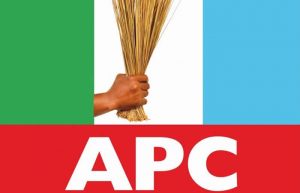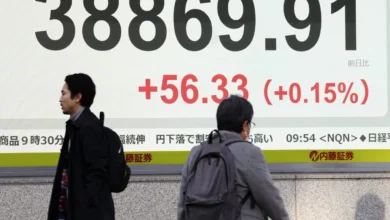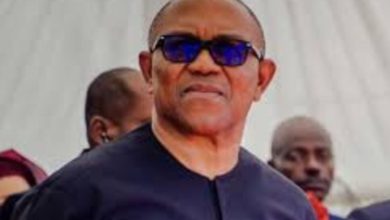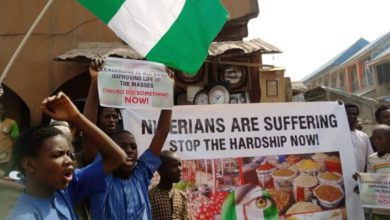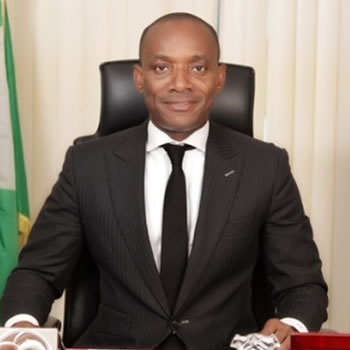
- What is clear is that the economic plans of these candidates offer short shrift to the crisis of the state and the role that a reformed public sector will play in starting Nigeria towards transformation.
An effective economic development strategy for Nigerian in 2023 must flow from a proper understanding of economic history. What does economic history teach us? First it teaches that those who focus on ideologies rather than strategies fail in the development race. Second, it teaches that you need a proper diagnosis of the crises of development before you can overcome them. Thirdly, it teaches that you need an effective state willing to intervene in economic matters in smart, firm, and comprehensive manner to achieve development. You cannot insource an effective state. You can outsource other inputs of development, but you cannot outsource the role of the state in economic development. If the state is dysfunctional or ineffective, you cannot get substantial and sustained economic development. So, the nature of the state and its institutionalization matter for economic development. The policy proposals of the leading candidates do not address the crisis of the Nigerian state and how it impacts on prospects of sustained economic development. In that wise, their plans are mere technical roadmaps without architectural design.
In the context of the deficient grasp of the crisis of development in Nigeria by the leading contenders for the highest office in the land, the most pressing challenge with regard to the 2023 presidential elections is to rescue the debate about Nigerian future by making two moves. First is to assert that in 2023 Nigeria’s economic policy orientation should be developmentalist rather than routine. The Nigerian state should move away from being a rentier and a ‘night watchman’ state. This means that its economic planners must deliberately work against perverse trends and impose a desirable outcome on the Nigerian economic landscape. They should not be watchers of economic trends who allow market forces deliver what they will. They should not just hold the fair balance for the private sector to deliver its business plan. They should be planners and managers who leverage on the principles and forces of the market to create an economic system that guarantees prosperity and freedoms for Nigerian people.
It is true as Adam Smith observed in 1776 that pursuing our individual interest, under certain economic conditions, results in outcomes that are beneficial to the public. But the caveat is ‘under certain economic condition’. In 1776 of mercantilism in which state authorities captured the agrarian enterprises to fund war and imperial conquests, the ‘invisible hand of the market’ alone was a game changer. But in Nigeria of 2023 of chronic underdevelopment, the ‘invisible hand of market’ needs the ‘visible hand of government’. Such hand has to be smart, strong, and firm.
Rethinking the role of the Nigerian state should be the starting point of a new economics for 2023 and beyond. This rethinking has to move beyond political and economic orthodoxies and be grounded in the reality of the Nigerian situation and the changing global political economy. The fact of the matter is that no nation develops outside the contexts- intellectual and political- of its times. Although, there are general principles of economic development that can be teased from economic theory and history, their implementation has to be grounded in the practical conditions of a country and a moment. As Yingyi Qian observed in respect of economic reform in China, universal principles of economics need to be tropicalized to fit into the peculiar characteristics of the country. The key question is: what are the special characteristics of the Nigerian state and what should be done to make it a productive state in the contexts of the current economic and social conditions? The leading candidates seem to be presenting a conception of the Nigerian state that is still trapped in the ideology of neoliberalism that has characterized economic policymaking since the 1980s. But in the face of the fact that the neoliberal state in Nigeria has been both illegitimate and ineffective, is it not now time to rethink the state in economic development in Nigeria.
The political economic doctrine of the state is complicated. We cannot treat that in single essay of this length. But some facts have to be mentioned. First, is that the state order in Nigeria and other African countries has been a major challenge to their development. Diverse scholars like Mahmood Mamdani and Claude Ake have pointed out the oddity of the state formation in Africa and how it has created a dysfunctional state that is incoherent and ineffective. The burden of colonial history cannot be discounted in reconstructing the Nigerian state. In spite of the weakness of dependency theory, we know that the flaws of the Nigerian state are defined by its incoherent formation.
History matters, as Daron Acemoglu and James A Robinson argued in Why Nations Fail (2012). But institution matters too. Historical path-dependency can be superseded through institutional redesign, as Douglas North notes. But to effectively redesign the state you must first understand its pathologies. The Nigerian state is constructed around neo-feudal norms and practices. This undermines production and distributional justice. it undermines production by discarding meritocracy and providing incentives for rent-seeking and disincentive for innovation and creativity. It undermines distributional justice by disposing governance and economic policymaking not to focus on the wellbeing of citizens and denuding the state of social protection. This weakens economic and social wellbeing, which circles back to loss of productivity.
The second fact of Nigerian state formation that is crucial for a new economics for 2023 is that the unstable and incoherent state order is made worse by the inequitable distribution of welfare. The ultraconservative norms that have defined the development of Nigeria’s socio-economic history have imposed on it an inclination towards gross inequality. Nigeria has a very high Gini-coefficient of 35.10% as at 2019. If we factor non-income-based assessment, Nigeria is more unequal than most countries in Africa. Gross inequality is not a happenstance. It is an expected result of institutionalized privilege and deprivation, that occur through the budgeting process, through labor and social laws, and through absence of effective remedies for economic injustice. An example of the later is the non-justiciability of the economic and social rights in the Nigerian constitution. One lesson we learnt from economists of inequality like Thomas Piketty and Emmanuel Sarz is that inequality is not a state of nature. It is a socio-political construction. Thomas Piketty rightly states in his magisterial work, Capital and Ideology (2020), that “Inequality is neither economic nor technological: it is ideological and political”.
So, moving Nigeria into sustainable productivity requires good analysis of the cause of its stagnation. It is bad strategy not to thoroughly understand a problem before proffering solutions. Low productivity and high inequality are the twin crises of the Nigeria’s economic collapse. These derive from, and are reinforced by, a dysfunctional and incoherent state order. That order originates from the neo-feudal and colonial character of the Nigerian state. Claude Ake diagnosed the manifestations of the colonial state order as ‘disarticulation’ and ‘incoherence’. Claude Ake adopted ‘articulation’ and ‘coherence’ as conceptual framework to critique post-colonial political economy because he was concerned with their spatial constraints. But, in my view, their normative constitution is more important, hence neo-feudalism offers a better lens to perceive the incoherence and disarticulation of the Nigerian economy.
In the context of disarticulation and incoherence or neopatrimonialism and elitism of the Nigerian economy, Nigerian presidential candidates should focus attention on how to change the state order in order to create an environment that enables higher productivity and social stability based on shared prosperity and egalitarian economic institutions. But sadly, none of them tries to analyze the pathologies of the state order that determine and reinforce the economic failure of the Nigerian state. None of them proposes to change the character of the state. This is pitiable because we know that the state order determines the trajectory of economic development. In the case of China, as Qian remarked, the choice of reform policies was determined by “first the initial historical conditions, and second, the contemporary constraints”.
Let us take some look at the various policy options of the presidential candidates and how the conceive the character of the state and its role in economic development. All of the candidates are pro-markets. That is not bad. A healthy faith in the principles of the market economic like the rule of law and protection of property rights is necessary for economic development. Both Atiku Abubakar and Peter Obi accept the logic of the market and allow the private sector leading role in the economy. This does not significantly change the direction of economic policymaking since 1999 when Atiku Abubakar played key role in a pro-market economic reform. That reform succeeded in improving Nigeria’s GDP and creating several institutions of economic growth. The administration was neoliberal with some strain of social market model. But the failure of its policy options consists in the fact that in spite of between 6 and 9% GDP growth for about a decade, Nigeria remained a very poor country with low productivity. The administration did not transform the structure of the Nigerian political economy and didn’t launch it into a new orbit of economic development, unlike the Deng administration in China and General Park’s in South Korea.
In the Atiku plan, the response to the Nigeria’s dysfunctional state formation and its deleterious impact on economic development is to basically shift economic functions from the public to the private sector. This requires privatization and reduction of price and policy distortions. This is a little bit more of same. Since the 1980s with the fiscal crisis and the Structural Adjustment Programme of the international finance institutions, the prescribed policy response to economic failure has been liberalization, privatization, and commercialization. The renewed call for privatization and the focus on ‘getting prices right’ will still be insufficient to overcome the incoherence and neopatrimonialism of the Nigerian economy.
In the main, Ahmed Bola Tinubu proposes what can be called a ‘planned economy’. He proposes to return the price control board of the late 1960s and 1970s. He wants a bigger and active government that would get involved in economic transactions in the same manner of the federal government of the military era. His government will expand public expenditure as a demand-side based economic stimulus to create 12% GDP growth. For want of a better word, Tinubu’s plan has an element of ‘dirigiste’ without the reformist approach associated with version of these command economies in socialist France and Bismarck Germany. Tinubu does not speak about transforming the rentier economy. He will plant a planned economy on Nigeria’s incongruous state order of endemic corruption and state capture.
Peter Obi is closest to strategic reform of the political economy. But here he misses the trees for the forests. He wants to move Nigeria from consumption to production without bothering about neo-feudal and neo-patrimonial character of the Nigerian political economy. He does not speak about recreating the Nigerian state short of the usual good governance indicators of transparency and accountability Worse still, his economic plan suffers significant degree of incoherence in the potential tension between his neoliberal prescriptions to deal with government failure and the market-oriented reform of the Nigerian state.
What is clear is that the economic plans of these candidates offer short shrift to the crisis of the state and the role that a reformed public sector will play in starting Nigeria towards transformation. The strategic initiatives of the troika betray an incoherent diagnosis of the underlying causes of Nigeria’s economic woes and a halfhearted commitment to radical change. At this point in Nigeria’s history, an economic development strategy must, like Joseph Stiglitz wisely observed, be such as is “aimed at facilitating the transformation of society, in identifying the barriers to, as well as potential catalysts for, change”. This is how China and the rest of the successful Asian countries managed their economic development. They ‘imposed’ desirable order on the dysfunctions of their feudal and aristocratic societies.
The main cause of our economic failure from independence to date is the failure to commit to comprehensive and radical transformation of the social bases of economic transactions. Nigerian policymakers in the First Republic were ideological rather than programmatic in the reforming the institutions of economic transaction. This approach resulted in the failure of the audacious development policies of that period. The first black Nobel Laureate in Economics, W. Arthur Lewis, noted this ideological obfuscation of African policy elites who enamored themselves of inapplicable Marxist concept of class society and overlooked the need to transform the neo-feudal character of the rural economy. This trend continues today with the neoliberal orientation of economic policymaking that detracts from the strategic work of structurally and normatively transforming structures, norms, and institutions of economic life. As Lewis puts it in his classic, The Theory of Economic Growth (1955), economic growth requires that (1) we improve the capacity of the society to economize, which means ability to reduce “the cost of any given product, or by increasing the yield from any given input or resources,(2) capacity to increase knowledge and its application, and (3) increase the amount of capital per head. This framework of economic growth requires radical transformation of society to entrench ‘economizing’ as a social norm and institutionalize egalitarian institutions.
The success of China and the rest of the Asian economies is because of this strategic approach to economic development that focused on diagnosing the problematic and recreating the social and political determinants of economic transactions. Their leaders were grounded in the lived experiences of their societies and deliberately removed constraints that held back the people from production. This approach manifest in the transformation of rural agricultural into industrial prowess. In terms of agro-reform, China and South Korea did extremely well unlike Malaysia and Thailand because the former focused on transforming the character of social and economic relations in rural communities. They were not stuck on the theories of the free market but recognized the need to empower small-holder farmers and use agrarian reform to reform feudal relations in their societies.
All the candidates for President in 2023 plan to boost productivity in agriculture. This is in keeping with the advertised policy priority of many previous and present Nigerian governments. Peter Obi intends to cultivate more arable lands and grow excess grains and use them for clean energy. Tinubu has big ideas for agriculture including establishment of a new National Policy on Agriculture and a Commodity Board to control price of agricultural products. Atiku’s has a more detailed and structured proposed intervention in agriculture. He will engage with states to undertake land reform, privatize Nigerian commodity exchanges and allow for private sector commodity marketing corporations, enhance access to capital for agriculturalists and encourage modernization and supportive tax regimes.
These detailed initiatives are not directed at changing the character of land ownership and improving livelihood and income generation in rural communities. None of the initiatives is aggressively tailored to channel agricultural development into industrialization as was done in East Asia. There are not many significant geographical variations between China, South Korea, and Taiwan on one hand and Malaysia, Thailand, Vietnam and Hong Kong on the other hand. They share similar past of poor, rural and agrarian economies with massive social injustice in terms of land barons who excruciatingly pauperized tenants and peasants who worked on their land. Each of them tried some form of agrarian reform. But the successful Northeast Asian countries were the ones that included redistribution of land and fiscal and policy support to ensure higher productivity and increased rural prosperity for former tenants.
Tying redistribution to agrarian reform was critical to economic development in rural and poor economies in the successful Asian countries. Nigeria needs to do the same. Nigeria cannot become a real economic powerhouse unless it unleashes the potentials of its rural communities. Here, the divergent results from Asia tell a good story. The unsuccessful South Asian countries like Thailand pretended to execute a land reform that reinforced rural inequality and reduced farm yield. Their agrarian policy did not boost rural economy and therefore cut off the oxygen for industrialization, which is enhanced domestic consumption. Whereas Northeast Asian countries provided credits to poor farm owners in order to stave off repossession by the land grabbers, the unsuccessful South Asian countries allowed, and in some cases reinforced cultural, social and economic institutions of rural inequality.
It is therefore no magic that in North East Asia we saw high economic growth resulting in lower inequality. In South East Asia, lower economic growth produced more inequality. In Latin America, even lower economic growth produced even higher inequality. Contrast with the United States which made its transition to industrial economy in the late 19th century with sets of progressive policies by Alexander Hamilton, the Secretary of Treasury, including land purchase and distribution to poor families. These policies resulted in equitable economic development. This is another proof that economic equality is good for economic growth.
Nigeria’s agro-industrial policy should focus on rural industrialization, or at least pay enough attention to agro reform in the rural communities. This is supported by the Asian experience. Each of the Asian countries that succeeded as industrial economy was hardnosed in selecting the right economic policies that reformed rural agriculture, ruthlessly promoted industrialization, and focused financial transaction towards promoting export-oriented agriculture and manufacturing. Notably, they refused to create a financial market that bubbled wealth into the pockets of entrepreneurs but left manufacturing plants without access to finance. The unsuccessful one promoted few privately-owned plantations in the name of agrarian reform, promoted merchandise and assembling plants instead of manufacturing plants and turned their banks into financiers of skyscrapers and shopping malls that created billionaires but impoverished the country.
As we consider the different visions and strategies of economic reform that the candidates offer, it is time to reflect on the lens of economic history, particularly of similarly underdeveloped Asian countries. East Asian economies succeeded not because they embraced the whole doctrine of free market. They succeeded because they avoided ideology and embraced pragmatism. China has a long history of false steps, even up to the period of Mao Zedong and the cultural revolution. The Great Leap Forward set China back, especially with the collectivization of agriculture, resulting in mass death and failed industrialization. Deng Xiaoping changed the game. He initiated a gradual, programmatic, and sensible reform that started with returning the land to dispossessed peasants with guaranteed tenure to encourage irrigation, higher seedlings, and extension services. Xiaoping tracked the benefit of increased productivity in agriculture into gradual industrialization. At a point he started to open China to western technology and capital, but in a controlled and strategic manner using special economic zones.
China abhorred the rigid ideologies of communism and the laisse faire theory of neoliberalism and embraced pragmatism. This approach is exemplified by the famous saying of Deng Xiaoping that it does not matter whether my cat is red or white if it catches rat. China followed the example of Japan and South Korea where pragmatic leaders like General Park wisely implemented transformative reform of agriculture and deliberate but systematic protection and nurturing of infant industry to transition their countries to industrial economies. In these countries, pragmatic leaders enhanced efficiency not by surrendering to the free trade, but rather using export discipline to improve productivity. The secret of the success of the East Asian countries is the pragmatic insight that what will ensure industrialization is to protect and nurture infant industry through export discipline. Export promotion worked where import substitution failed in Africa.
China and the rest recognized the pitfall of crony capitalism. When they raise tariff to protect infant industries, they forced those industries to perform according to export benchmarks. Those who failed lost the fiscal and policy support. By so doing they chose winners and losses, not through political patronage, but through the discipline of international trade. This is the model of a development state; a government, as Stephen Cohen and J Bradford DeLong in their book, Concrete Economics: The Hamilton Approach to Economic Growth and Policy, “that signaled the direction, cleared the way, set up the path, and – when needed- provided the means”
We need Home-grown economics; and home-grown economics thrives on effective leadership. The divergence between China and the successful East Asian country on one hand and African countries on another hand may be the quality of leadership during their transitions. We can even notice the difference that leadership makes to development in the varying outcomes in different countries of East Asian. South Korea made it. Malaysia has not. Malaysia attempted some of the policies that South Korea, China, and Japan practiced. Malaysia tried to do agricultural reform. It had ambition to be an industrial power and boosts a financial high street. What went wrong? Well. The answer is selection of policies and failure to execute properly. Unlike General Park, Malaysian Prime Minister, Mahatir, did not undertake the sort of agrarian reform that freed rural households from economic misery and improved farm yield. In the place of household farming Malaysia build one-man plantations. Most of the political elites were landlords of these plantation.
On manufacturing, Malaysia did not impose the sort of export discipline that South Korea imposed on its industrialists. The lack of export discipline encouraged cronyism and ensured the thriving of assembling plants rather than manufacturing plants. Malaysia allowed politically connected persons to own banks and use them to get rich. As they say, to steal a country own a bank. Capitalist used the banks to finance skyscrapers and shopping malls whereas banks in South Korea financed manufacturing. The result is that few Malaysians became billionaires and the country lagged in industrialization whereas in South Korea, few Koreans were millionaires while they country advanced as an industrial economy.
The pragmatism of the successful East Asian economies was a product of both the pedigree, training and temperament of the leaders who happened on the scene after their independence. These leaders, particularly those of South Korea and China were well informed about the conditions of colonialism and the ideological basis of their underdevelopment. They came from the right side of the social divide, namely the peasants (although Deng was a grandchild of a former ruler). They also were patriotic and overwhelmed with a passion for industrial takeoff of their countries. Although they were flawed men, they were all undivided on the mission. They were not prisoners of narrow and sectional interests. One thing was very clear, they forged no strategic business or political interests with foreign or local business class so they could exercise clear-sighted and emphatic direction of the business communities. They never believed that private sector would develop their country. Rather, they believed that the public sector would develop the country using the private sector. Theirs was entrepreneurial governance, mobilizing and incentivizing for the long-term buck, not the short-term gain.
They did not abandon leadership to the private sector. they recognized the principles and forces of the market, and they deliberately and firmly used those to push their economies from poverty to prosperity. That is what we need in 2023 and beyond.
•Dr. Sam Amadi is Director of Abuja School of Social and Political Theory
